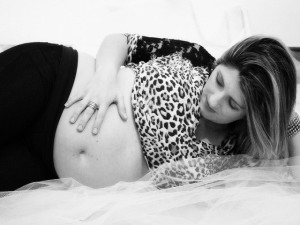The Occurrence of Varicose Veins in Pregnant Women

 Varicose veins aren’t simply an aesthetic problem. These can be troublesome when they start to throb, as the sensation could prevent you from performing daily activities. If you’re an expectant mother, then there’s a higher chance that you’ll develop varicose veins around the 29th week of your pregnancy. Here’s what you need to know about the occurrence of varicose veins during pregnancy:
Varicose veins aren’t simply an aesthetic problem. These can be troublesome when they start to throb, as the sensation could prevent you from performing daily activities. If you’re an expectant mother, then there’s a higher chance that you’ll develop varicose veins around the 29th week of your pregnancy. Here’s what you need to know about the occurrence of varicose veins during pregnancy:
Why Do Varicose Veins Appear During Pregnancy?
The amount of blood that circulates inside your body during pregnancy increases to support your baby. You also produce more progesterone, which helps relax your blood vessel walls. With these combined, the veins in your legs are at higher risk of becoming swollen because of the additional pressure. They have to work harder to push all the blood back to your heart.
Is it Safe to Undergo Varicose Vein Treatment When Pregnant?
Hogue Clinics suggest undergoing treatment when the varicose veins are severe. If there’s no discomfort involved, then preventive measures will do during pregnancy. These include exercising for better circulation, avoiding standing and sitting for prolonged periods, and elevating your legs for at least 10 minutes once a day. Some may recommend wearing compression stockings for the duration of your pregnancy.
Are Varicose Veins a Serious Problem for Pregnant Women?
Problems related to varicose veins don’t usually happen during pregnancy, but during labor. If the varicose veins are in the area between your back passage (perineum) and vagina, then your doctor needs to be more careful. They have to make sure that your perineum doesn’t tear when you’re in the stage of pushing your baby out, as this could lead to severe bleeding.
Having varicose veins during pregnancy is common. By knowing its possible risks and whether you need treatment right away, you can have peace of mind and a considerably healthy pregnancy.




